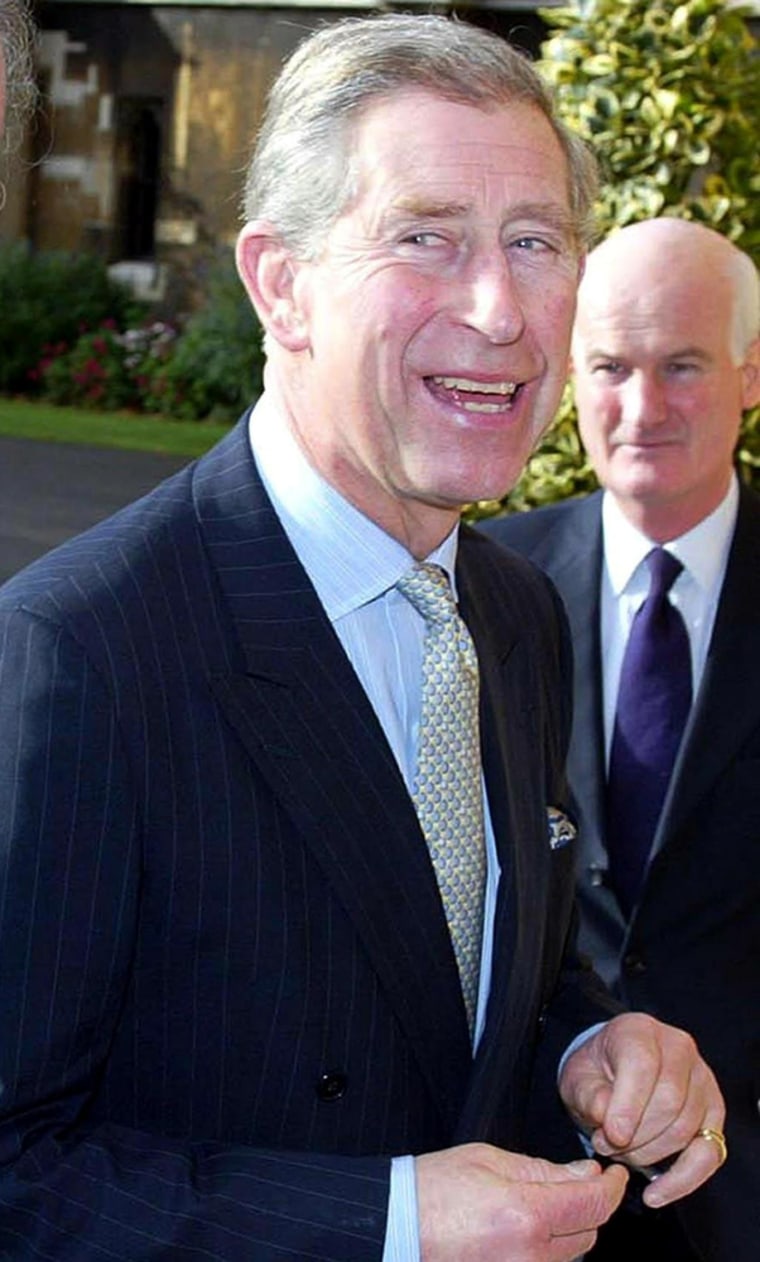The tempest over Prince Charles’ views on upward mobility was all a misunderstanding, the heir to the throne said Monday, insisting he had not said that people should “know their place” — and by implication, trim their ambitions to match their social rank.
“I believe passionately that everyone has a particular God-given ability,” Charles told a conference organized by Archbishop of Canterbury Rowan Williams. “Often all that is needed is the right help at the right time for them to make the most of it.”
That was not the impression many got from a royal memo disclosed last week, in which the prince railed against those who think they can advance to become “high court judges, brilliant TV personalities or infinitely more competent heads of state without ever putting in the necessary work or having natural ability.”
It was that last section that drew the most attention in the media, coming as it did from a man who would become head of state just by outliving his mother, Queen Elizabeth II.
‘What's wrong with everyone nowadays?’
Charles’ handwritten memo became public Wednesday at an employment tribunal where a former personal assistant in his private office, Elaine Day, claimed unfair dismissal. The prince wrote the memo in reply to Day’s suggestion that personal assistants with university degrees should be given the opportunity to train to become private secretaries — a more senior position.
“What’s wrong with everyone nowadays?” the Prince of Wales huffed in the note. “What is it that makes everyone seem to think that they are qualified to do things far beyond their technical capabilities? It’s social utopianism which believes humanity can be genetically and socially reengineered to contradict the lessons of history.”
The British press immediately pounced on the remarks, and two government ministers — including Education Minister Charles Clarke — publicly upbraided the prince.
The Sunday Times commented that the affair revealed Charles’ office as a place where the “boss is a mercurial ego fond of homespun philosophy who dreams of greater stardom. Petty rivalries abound. Titles and hierarchy are all.”
The prince tries to clarify remarks
Some media reports appeared under headlines about “knowing one’s place,” but Charles insisted Monday he said no such thing.
“I think that ‘people should not try to rise above their station’ is a travesty of the truth, nor indeed have I ever used any such words or anything like them,” Charles told the archbishop’s gathering Monday. The meeting was closed to the media, but Charles’ office released a text of his remarks.
“For the last 30 years, I have done all I can to give young people who have limited opportunities a chance to succeed,” Charles said. His Prince’s Trust has sponsored many programs to help disadvantaged youth.
“Success can come in many forms,” he added. “In my view it is just as great an achievement to be a plumber or a bricklayer as it is to be a lawyer or a doctor. Not everyone has the same talents or abilities, but everyone, with the right nurturing, can make a real difference to their communities and to the country.”
Despite his modest academic record — he attended Cambridge University but didn’t get a degree — Charles has ranged widely in his pronouncements, promoting organic farming and alternative medicine, condemning modern architecture and bemoaning the decreasing use of the Book of Common Prayer.
While he claimed his views on education have been misrepresented, Charles defended his “old-fashioned” values in the speech Monday.
“I have been around long enough to see what were thought of as old-fashioned ideas have now come into vogue. Ambition is a good thing and should never be constrained by a person’s starting point in life,” he said.
“People must be encouraged to fulfill their aspirations in ways that recognize their different abilities and talents. Thank God they do and that we are not all the same.”
Supporters weigh in
Despite the controversy, Charles did get some support from the public.
“I definitely agree with him,” said Steve Trendell, who was taking a smoke break outside a central London office building. “I think too many people graduate from school thinking they can make it with no skills at all.”
His co-worker, Bobbia Walker, nodded her assent. “And just because it’s unpopular doesn’t make it any less true,” she said.
But another Londoner, Sarah Todd, said “it was a pretty foolish thing to say.”
“Kids should be encouraged to get the training they need, not told they have no chance of making it in the first place,” Todd said.
